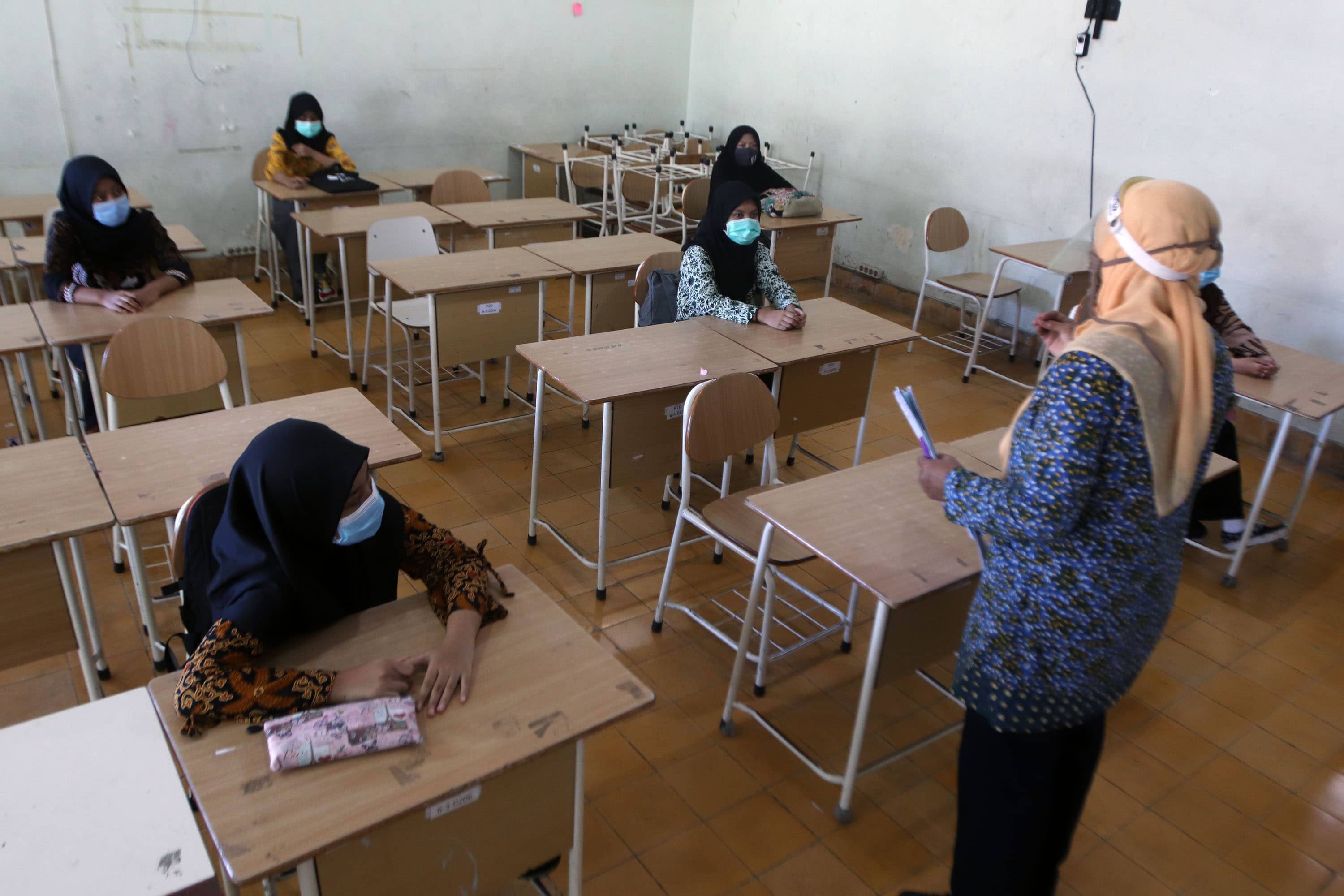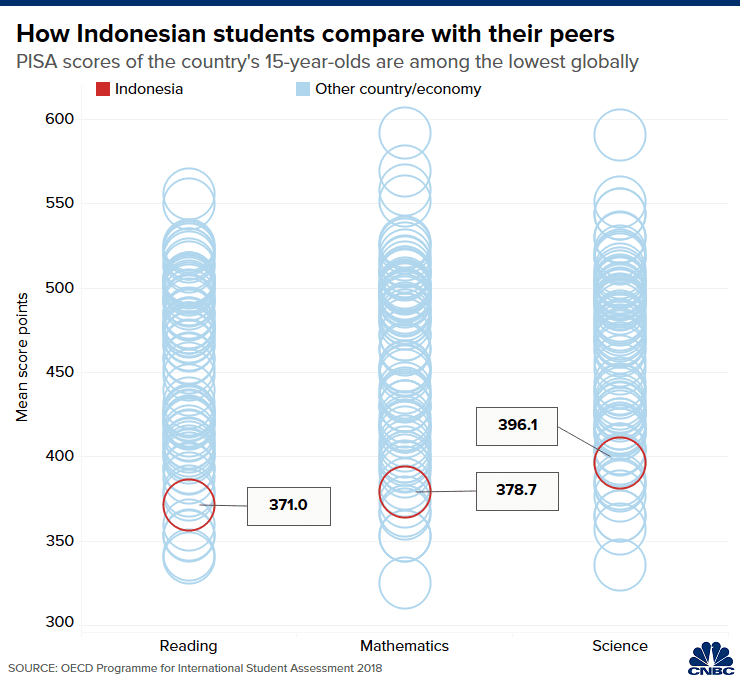
The pandemic's effect on education is not being discussed enough, says Indonesian minister
by Yen Nee LeeKey Points
- There's not enough discussion globally about the coronavirus pandemic's effect on students' learning, said Indonesia's Education Minister Nadiem Anwar Makarim.
- Authorities in many countries have closed schools to prevent further spread of Covid-19, moving teaching and learning largely online.
- "I think everywhere in the world — not just in Indonesia — distance learning will at least in the short term have a negative impact on educational outcomes and qualities," said the minister.
SINGAPORE — There's not enough discussion globally about the coronavirus pandemic's effect on students' learning as schools are closed to prevent further spread of the virus, Indonesia's Education Minister Nadiem Anwar Makarim told CNBC on Monday.
"A lot of people keep mentioning about the health crisis and about the economic crisis that's caused by the pandemic but not enough people are talking about the educational crisis, the learning crisis that is happening all around the world, not just in Indonesia," the minister told CNBC's "Street Signs Asia."
"So we really have to find the right balance between ... the health crisis as well as the educational crisis as leaders," he said ahead of the virtual Singapore Summit happening this week.
Currently, schools in more than 50 countries remain fully closed, affecting over 870 million students globally, according to data by the United Nations Educational, Scientific and Cultural Organization or UNESCO.
To ensure that students can continue their education during school closures, many countries moved teaching online. But the arrangement could leave some students behind, especially those who have limited access to the internet — a problem that experts said could exacerbate income inequalities in the long run.
Indonesia's challenge
In archipelagic Indonesia, the challenge of making sure all students have access to remote learning is "enormous," said Makarim.
"I think everywhere in the world — not just in Indonesia — distance learning will at least in the short term have a negative impact on educational outcomes and qualities because it takes a long, long time for people to adapt to new way of teaching and learning," he said.
"This in Indonesia is even more acute because of the huge diversity of geographic challenges, infrastructural challenges," he added. "The challenges are enormous, really."

Many schools in Indonesia have remained shut since March as authorities struggle to contain the coronavirus disease or Covid-19. But only around 40% of Indonesians have internet access, most of them in urban areas such as capital city Jakarta, according to Singaporean think tank ISEAS-Yusof Ishak Institute.
Makarim said his ministry has taken several steps to address those problems. Those include:
- Launching a national TV station to air educational programs because television "has a far greater reach" compared to the internet in the country;
- "Dramatically simplify" the curriculum to focus on essential numeracy and literacy skills, giving teachers time to adapt to remote teaching;
- Allowing schools the freedom to spend national budget allocated to them on items such as laptops and tablets;
- Subsidizing mobile data for students to improve their access to remote learning.
The minister also said Indonesia has reopened some schools in the country's "poorest" and "most marginalized" regions where the risk of Covid-19 spread is assessed to be relatively low. Those schools are allowed to operate at a 50% capacity, he explained.
"These are the areas where the majority of the students find it extremely difficult to do any type of online learning ... For those kids that have little access to internet, unreliable electricity, we have to make sure they don't get left behind even further," he said.
"One of the most important things we can do as an education ministry and government in general is to set policies that minimize the permanent damage, what we don't want to see is a loss of an entire generation and the gap between the haves and have-nots becoming insurmountable."